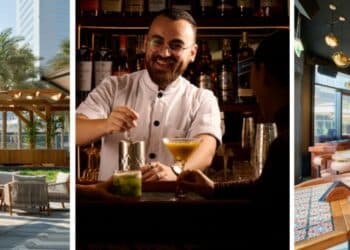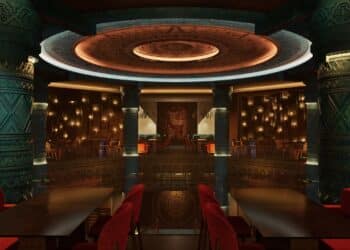Invest in your internal stakeholders and your external customers will follow, says Ali Sinaei, co-founder and managing director, Roundmenu

Several major hospitality groups have recently introduced loyalty programmes that focus primarily on their restaurant and leisure offering rather than the traditional hotel rooms model. U by Emaar and Isme by Jumeirah were launched within months of each other earlier this year, while global chain InterContinental Hotels Group brought its IHG Dining Rewards programme to the UAE last year.
Like all loyalty programmes, each has its own unique methodology, but one point each of these companies have in common is an understanding of how important – and how challenging it is – to drive restaurant loyalty in the resident community.
This is the case in all major cities, but Dubai remains one of the most difficult markets when it comes to building a loyal diner base. The choice of restaurants is phenomenal, with many new eateries opening every month, often in completely new entertainment hubs that tend to tempt people to move from the previous hotspot.
Investing in full service loyalty programmes is one way to tackle this level of competition, but these schemes can also cost the operator significant amounts upfront, with credit essentially given in the form of points, which are redeemed at an undefined time in the future.
So, what can be done at an outlet level to encourage diners to develop an affinity with a restaurant? I believe restaurants are more likely to build a loyal audience if they can offer a product that diners hanker after; a place they will grow fond of; and an experience they will want to replicate.
Easier said than done, I’m sure, but the factor underpinning all of these assets is the restaurant industry’s most undervalued commodity – its people.
Investor appetite and the supply infrastructure in Dubai means restaurants generally offer good quality ingredients and food. Design is second to none, with fantastic eateries that double up as lounges, bars and clubs. But where the dining experience is let down, time and time again, is with regards to service. This is a generalisation, but I think it’s fair to say that most of us in the industry have been known to lament the quality or consistency of restaurant service in Dubai.
The old habit used to be to throw people at the problem; unfortunately, too often it was people that had not been properly trained and didn’t know their product.
Speaking as a diner, I expect my server to be able to recommend dishes to me, suggest accompaniments and provide detailed answers to my questions. By default, this means that I am also expecting my server to have eaten all the dishes on the menu. I want them to have an opinion, not just a list of items to up-sell. They can only understand how to best engage with the diner, if they have had a similar experience themselves.
This is the area in which the restaurant industry sadly falls down. It neglects to arm its staff with the information they really need to deliver what the guest wants. Service level is a key driver to loyalty and staff need to be educated accordingly.
It’s wise to remember that in many industries, it’s fairly commonly accepted that retaining a customer is up to seven times cheaper than acquiring a new customer. For this reason, I would urge restaurants concerned with loyalty to turn their gaze internally, invest in their staff, and witness the positive impact on those coveted external stakeholders. Loyalty, as far as I’m concerned, comes from within.
ABOUT THE AUTHOR:
Ali Sinaei is the co-founder and managing partner of RoundMenu, the UAE’s leading English and Arabic restaurant discovery platform, with more than one million visitors every month. Contact: ali@roundmenu.com.


































































